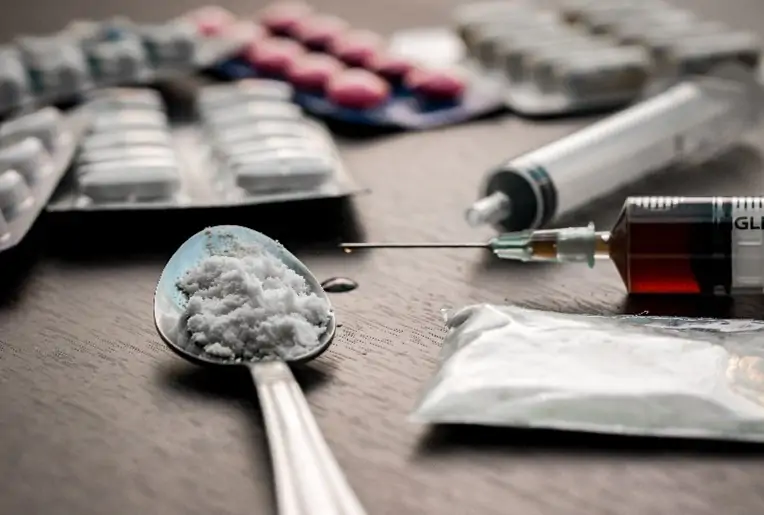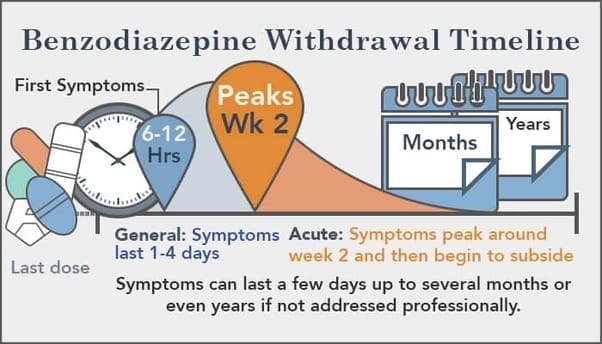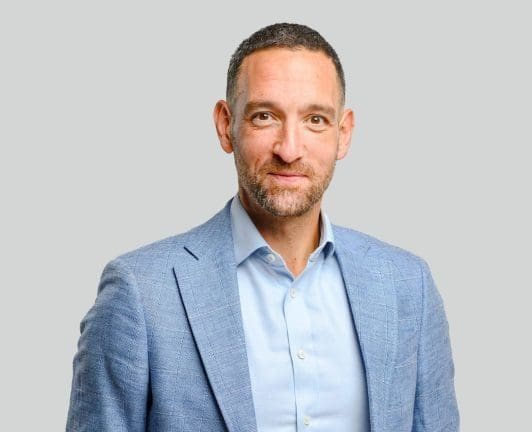Drug addiction has often been stigmatised, associated with poor judgement and moral failing. In reality, people from all walks of life can become addicted to drugs through no fault of their own. Most drugs are inherently physically and mentally addictive due to the profound effects they have on the brain and body. The way certain drugs alter the brain’s pleasure and reward system means we are hardwired to want to repeat the behaviour. With repeated use, the most addictive drugs can cause long-lasting damage and fatal outcomes.
It’s vital for friends and family members to understand that the compulsive and reckless behaviour that comes with addiction is driven by the drug itself and not the fault of the person taking it. At Delamere, we have direct experience of treating the most addictive drugs in the world and can help you leave addiction behind from the sanctuary of our unique forest retreat. Here, our holistic experts give a rundown of what makes each drug particularly addictive and the kind of therapies we use to treat drug addiction.
1. Heroin addiction
Heroin is one of the most abused opioids in the world. This highly addictive drug releases a burst of dopamine and endorphins which trick the brain into linking it with intense pleasure and subsequently leads to compulsive use. The level of a person’s addiction can vary in severity depending on the method of administration. Injecting and chasing heroin have traditionally been the most common ways of using it (1). However, recently, we’ve seen an increase in sniffing and smoking heroin, especially with cannabis. People who abuse heroin in these ways and develop an addiction may have an increased chance of relapse (2).

2. Crack cocaine addiction
Also known as rocks, gravel, sleet and nuggets, crack cocaine is a combination of cocaine powder, water and baking soda boiled up to form solid crystals. It is then typically heated and smoked. Crack cocaine causes a rush of dopamine in the brain that can’t be processed in the normal way. This makes your body less able to produce dopamine naturally and the brain becomes reliant on cocaine to achieve the same ‘high’. You don’t need to be taking crack cocaine every day to become addicted. If you’ve tried to cut down, but can’t, it’s time to seek professional help.
3. Alcohol addiction
The availability of alcohol and its widespread use makes it one of the most addictive substances in the world. Drinking at an early age, family history and mental health problems can all make you more prone to developing alcohol addiction. Chronic stress, financial problems and work burnout are also contributing factors. Alcohol causes the drinker to lose control over their actions and reactions, which can lead to alcohol abuse and dependence. Drinking regularly over many years changes a person’s brain and body chemistry which makes it very hard to quit.
4. Nicotine addiction
A recent Lancet study revealed the number of smokers worldwide has reached a record high of 1.1 billion and that annual tobacco-related deaths have reached almost 8 million (3). As well as being legally available, tobacco is highly addictive. Some say the nicotine in tobacco is as addictive as heroin or cocaine.
Similar to other addictive drugs, nicotine floods the brain’s reward system with dopamine and makes the user want more. Smokers tend to start in their teenage years which can make it even harder to give up. These days, vaping is seen as a safer alternative but, as users are still addicted to nicotine, the problem of addiction remains.
5. Barbiturate and Benzodiazepine addiction
Barbiturates are a group of drugs called sedative-hypnotics typically prescribed for seizures, anxiety and insomnia. The most common types are phenobarbital, secobarbital, amobarbital and pentobarbital. Their modern-day counterpart, Benzodiazepines, act in a similar way, slowing down brain function and calming the central nervous system.
Despite not being as common as ‘benzos’, barbiturates are actually much more dangerous. When mixed with other prescription drugs or medications, barbiturates can cause excessive drowsiness, loss of coordination, confusion and hallucinations. Both drugs are highly addictive and are only designed to be taken for a short period of time. Always take medication as prescribed and ask for help if you need it.

6. Methadone addiction
Methadone is a man-made opiate used to treat heroin addiction, commonly prescribed as part of maintenance therapy or a supervised drug detox. It can also be used for severe pain during in palliative care. As well as having medicinal purposes, methadone is still highly addictive and shouldn’t be taken for longer than three months to prevent addiction. If taken alongside CNS depressants, methadone can increase respiratory problems, leading to coma or even death.
7. Methamphetamine addiction
‘Meth’ and ‘Crystal meth’ are highly addictive forms of the Central Nervous System (CNS) stimulant, methamphetamine. They are often cut with other addictive substances, such as opioids, which adds to their addictiveness. Methamphetamine addiction is notoriously hard to treat because research shows it “alters brain structures involved in decision-making and impairs the ability to suppress habitual behaviours that have become useless or counterproductive” (4).
8. Opioid painkiller addiction
Prescription painkillers don’t just help to numb chronic pain; they also create a feeling of euphoria which can quickly become addictive. Some of the most frequently abused opioid painkillers include morphine, codeine and co-codamol. According to The Diagnostic and Statistical Manual of Mental Disorders, Opioid Use Disorder (OUD) is characterised by “loss of control over the use of opioids resulting in physical, psychological, and social harms”.
9. Gabapentin addiction
It may not be as addictive as opioid painkillers, but the anticonvulsant medication, gabapentin, still has the potential for abuse. Typically prescribed for nerve pain and seizures or to support people during alcohol and cocaine withdrawal, gabapentin gets to work on the body’s nervous system, helping people to relax, reduce anxiety and get a good night’s sleep. On its own, gabapentin is relatively low risk, but is frequently abused by people who have other drug addictions.
10. Cannabis addiction
Last, but by no means least, on our top 10 list of most addictive drugs is cannabis. Widely believed to have numerous positive health benefits, the softening of laws surrounding cannabis has led to it wrongly being deemed non-addictive. As well as the added lure of nicotine, when smoked, cannabis drives neurobiological changes in the brain that perpetuate the cycle of addiction (5).
How can Delamere help with drug and alcohol addiction?
Nobody understands addiction like Delamere. Many of our therapists are in active recovery themselves and can therefore relate to your story unlike anyone else. We have extensive experience of helping people to overcome drug addiction of all kinds, from heroin and cocaine to alcohol and prescription painkillers. If you are worried about addiction for yourself or someone else, please ask for help.

Every drug rehab treatment programme begins with a medical drug detox in the tranquil surroundings of our forest retreat. You are fully supported at all times by a designated focal therapist and a clinical team who will ensure a safe and comfortable withdrawal. Following this, you will have the opportunity to speak openly and without judgement in both one-to-one and group therapy sessions. It takes a lot of bravery to ask for help but you are only a phone call away from leaving addiction behind for good.
References
1. Hosztafi S. A heroin addikció [Heroin addiction]. Acta Pharm Hung. 2011;81(4):173-83. Hungarian. PMID: 22329304.
2. Morgan, N., Daniels, W. & Subramaney, U. Smoking heroin with cannabis versus injecting heroin: unexpected impact on treatment outcomes. Harm Reduct J 16, 65 (2019). https://doi.org/10.1186/s12954-019-0337-z.
3. GBD 2019 Tobacco Collaborators. Spatial, temporal, and demographic patterns in prevalence of smoking tobacco use and attributable disease burden in 204 countries and territories, 1990–2019: a systematic analysis from the Global Burden of Disease Study 201.
4. Groman, S.M.; Morales A.M.; Lee, B.; London, E.D.; Jentsch, J.D. Methamphetamine-induced increases in putamen gray matter associate with inhibitory control. Psychopharmacology 229(3):527-538, 2013. Abstract.
5. Zehra, A., Burns, J., Liu, C. K., Manza, P., Wiers, C. E., Volkow, N. D., & Wang, G. J. (2018). Cannabis Addiction and the Brain: a Review. Journal of neuroimmune pharmacology : the official journal of the Society on NeuroImmune Pharmacology, 13(4), 438–4.







